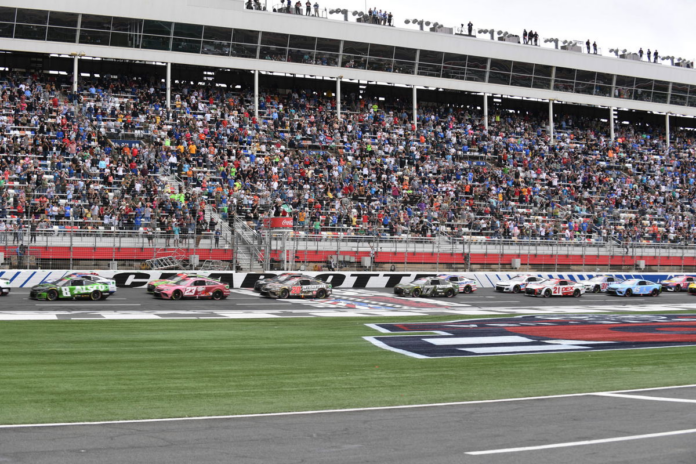As a sport where drivers race at 200 mph in close quarters, NASCAR comes with its risks. The stock car racing series has been witness to several mind-boggling crashes throughout its 76-year-old history. In 2024, we saw Josh Berry flipping and hitting the wall in Daytona, and Corey LaJoie doing a somersault in Michigan. Thankfully, these crashes are a far cry from the gruesome situation the sport faced in 1995.
Russell Phillips was an upcoming driver in that era when Dale Earnhardt was an established legend and Jeff Gordon was paving his racing career. Owning the No. 57 car, Phillips drove in the NASCAR Sportsman division – he finished 8th in a 1993 race. However, before he could improve upon that, Phillips tragically lost his life.
NASCAR’s most horrifying wreck
ADVERTISEMENT Article continues below this ad
We all know about how Dale Earnhardt’s 2001 Daytona 500 tragedy spurred a safety revolution. NASCAR introduced a sturdier SAFER barrier and made the HANS (Head and Neck Safety) device mandatory. However, accidents preceded Earnhardt’s tragedy as well – including one that shocked race fans at Charlotte Motor Speedway on 6th October 1995. Russell Phillips was a race-car fabricator and volunteer fireman from Mint Hill, North Carolina. Outside of his racing passion, his friends described him as a ‘gentle giant’ – tall and intimidating yet very kind and down to earth. He sought to pave higher career goals in the Sportsman division, but fate played him cruelly.
Russell Phillips won the pole for the Winston 100, his first in 17 NASCAR Sportsman starts at Charlotte. The 67-lap race started well for the 26-year-old, as he led for the first two laps. After that, however, he fell back to the 10th spot by the time the cars driven by Joe Gaita and Morris W. Bice got together and spun in turn four. The ensuing wreck rattled Steven Howard, who reached the scene and steered hard right. Unfortunately, Phillips was right by him – his car got onto its right side and the top of the car came in contact with the retaining fence and the poles that secured it.
The resulting disaster was horrifying beyond any NASCAR fan’s wildest imagination. An atmosphere of excitement soon turned into one of disbelief and tragedy. When rescue officials rushed to the scene, they knew any resuscitation efforts would be futile – dismembered human remains were scattered across the racetrack. Free-lance photographer Tom Whitmore of Chesapeake, who was shooting from inside the fourth turn, said, “It looked like someone had taken a can opener to the roof. It was like there was a cave where the roof was supposed to be like someone had scooped it out. That’s as gruesome a wreck as I can ever recall.”
Russell Phillips’ shocking death kicked off a flurry of changes – yet they came slowly.
ADVERTISEMENT Article continues below this ad
Dismantling the series
Trending
Soon after the driver lost his life, NASCAR workers covered Phillips’s body with a sheet and held up a huge yellow tarp to keep the scene out of view of the crowd. All this effort had one purpose – how to resume the race as soon as possible. The accident occurred at 4:20 PM and about a dozen officials came to inspect the site. They included Winston Cup director Gary Nelson and vice president of competition Mike Helton. “We investigate every accident individually,” NASCAR spokesman Kevin Triplett said. By 5 PM, the remaining race cars were back on the track, and stunned members of Phillips’ team were packing up their race car trailer.
However, it did not take long for NASCAR to take the necessary action. Charlotte Motor Speedway‘s officials collaborated with safety experts to analyze the crash dynamics. According to the forensic reviews, the crash’s force was amplified by the car’s high-speed trajectory and the design of the wall on Turn 4. The primary cause was the failure of the roll cage and the roof bar system. So NASCAR embarked on building stronger roll cages. It also announced the discontinuation of the Winston Sportsman Division, permanently marred by Russell Phillips’ gruesome passing.
ADVERTISEMENT Article continues below this ad
The former NASCAR driver’s death remains a spine-chilling tragedy. As we look back on this history, the safety that exists in the sport today brings relief to our hearts.


